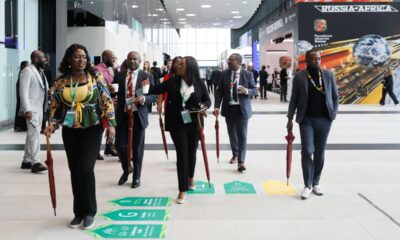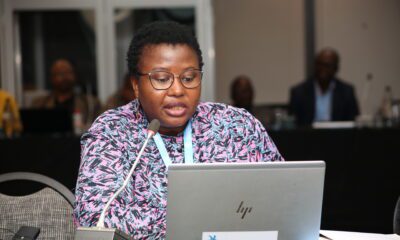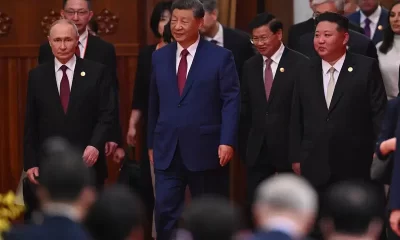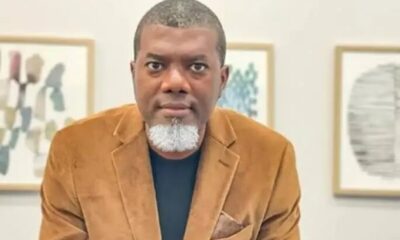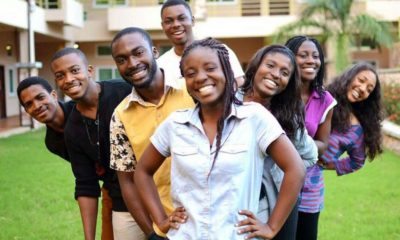Columnists
Nigeria @62: Nigeria’s Chequered Political History -By Richard Odusanya
The annulment of that election brought to a head the monumental fraud which the Nigerian military under the then self-styled “President” Ibrahim Babangida had become, and shook to its foundation the patriotic credentials which it had hitherto touted. Put simply, June 12 has become an all important event and a watershed.

Nigeria’s chequered political history is bedeviled with the gory tales of … election results and politically motivated assassinations in the nation’s democratic setting. Since 1950 or thereabout, Nigerian politics has been riddled with issues of ethnic domination and the control of political power and instruments of governance. Another concern of the tribes is the control of national economic power and mineral resources. It is therefore not surprising that the elite of tribal groups believe their interests are at stake in who becomes the President of the country. Which is why Nigerian history is replete with calls for secession, as exemplified by the protracted agitations for both the “Biafran” and “Oduduwa” separatist agenda. So far, the nation has had more than 20 years of uninterrupted period of democracy, the longest in Nigeria’s history.
Nigeria became a British protectorate in 1901. The period of British rule lasted until 1960, when an independence movement led to the country being granted independence. Nigeria first became a republic in 1963, but succumbed to military rule three years later, after a bloody coup d’état. A separatist movement later formed the Republic of Biafra in 1967, leading to the three-year Nigerian Civil War. Nigeria became a republic again after a new constitution was written in 1979. However, the republic was short-lived, as the military seized power again in 1983 and later ruled for ten years. A new republic was planned to be established in 1993, but was aborted by General Sani Abacha. Subsequently, Abacha died in 1998 and a fourth republic was later established the following year, which ended three decades of intermittent military rule.
Historically, Nigeria gained her political independence on October 1, 1960, Nigerians have witnessed the same pattern in political campaigns. Public office holders have chosen to dwell on name calling, blame game, campaign of calumny and smear campaign rather than facing the real issues constituting a clog in the wheel of the country’s progress. In a few days time, precisely on 1st October 2022, Nigeria will attain the age of 62 years of age – as it precedes the 2023 general elections. A man at 62 is a legally accountable adult whatever his contradictions and idiosyncrasies. A nation at 62 is of age and firmly answerable for its condition and conduct, whatever its history or circumstances. Nigeria at 62, a people and nation extraordinarily gifted and endowed yet with a profound promise yet unfulfilled, remains patently the epitome of a marvel of an illusive enigmatic anomaly the substance of which continues to be slippery to the grasp of even its own people.
Interestingly, the right to vote in Nigeria has a rather chequered history. Universal adult suffrage became a reality in Nigeria in the 1979 elections when women in the North were allowed for the first time to participate in elections. Originally the right to vote was thought of as a direct consequence of property interests rather than adhering to the person as a political right. It was only gradually that the vote was altered from a property and income right to a political right. Interestingly, the electoral commission has conducted elections at national and state levels since 1999 when the country returned to democratic rule. Its performance reached a nadir in 2007. Five governorship elections won by candidates of the ruling Peoples Democratic Party (PDP) that year were reversed by the courts. Umaru Musa Yar’Adua was elected president in the poll and he served until his sudden death in 2010. On assuming office he admitted that they had shortcomings and went on to establish an electoral reform committee headed by Justice Mohammed Uwais.
Notwithstanding, the mileage covered, for very long the issues of June 12, 1993 or June 12 for short, occupies an undying place in Nigeria’s chequered history for obvious reasons. On this day, an estimated 14 million Nigerians pulled down the divisive walls of religion, ethnicity and other primordial sentiments to vote for a new united Nigeria in a presidential election that became adjudged as the freest, fairest and most orderly in Nigeria. The annulment of that election brought to a head the monumental fraud which the Nigerian military under the then self-styled “President” Ibrahim Babangida had become, and shook to its foundation the patriotic credentials which it had hitherto touted. Put simply, June 12 has become an all important event and a watershed.
But just as inherent in every action lies a reaction of equal velocity, that singular military misadventure bore in its very bowel an uncommon Nigerian courage midwifed by the civil society that would thoroughly demystify and hound the military back to the barracks, and also lay the foundation for the country’s current democratic experience. This article focuses and analysis the forces that shaped June 12 elections, the role played by the civil society in its attainment and its prospects and implications for democracy in Nigeria. This is similar to the succession of Civil War, Reconstruction and the Gilded Age that was marked by bitter partisanship, endemic corruption, appalling violence and a general sense that democracy was failing.
Therefore, it is my considered view that at the age of 62 years, rewriting the pages of our beautifully imperfect lives is a task that must be done – can we change the narratives through the mindset? This is where the aspect of “Mind Restructuring” comes to mind. As such, I like to conclude this article that focuses on our chequered political history by joining millions of our compatriots home and abroad to salute our heroes: Nnamdi Azikiwe, Obafemi Awolowo, Tafawa Balewa. Legendary Moshood Kashimawo Olawale Abiola (MKO), African soldier and the pillar of sport in Africa. MKO paid the supreme price for the democracy of today. Also our living legends: Wole Soyinka (WS), Abubakar Umar, Ebitu Ukiwe, Bola Tinubu (BAT) Femi Falana (FF) and many of our comrades too numerous to mention.
Although, We are living in a time of extreme partisanship and societal division. There is much rancour in street and on the social media. But this is a condition that plagues every generation. As NIgerians prepares to marks its 62nd Independence anniversary, her citizens are stuck in a general anomie of despondency. This is as a result of general insecurity in the country, rising unemployment and high-cost of living. It is also an age of anxiety, with many measures of Nigeria’s socioeconomic progress painting a picture of a nation in great distress, particularly as we approach the 2023 general elections. But while things may seem all doom and gloom, a new dawn is in the firmament – transition from night to day as the morning twilight brightens the sky.
Therefore, I like to encourage us with the words of John Fitzgerald Kennedy often referred to by his initials JFK and also known as Jack Kennedy, an American politician who served as the 35th president of the United States from 1961 until his assassination near the end of his third year in office. Kennedy was the youngest person to assume the presidency by election. He was also the youngest president at the end of his tenure. JFK, posited: “In a time of domestic crisis, men of goodwill and generosity should be able to unite regardless of party or politics.” Happy 62nd Independence to all our compatriots home and abroad. Congratulations NIgerians.
Finally, permit me to dedicate this article that focuses on the 62nd Independence anniversary specifically to the followings: Chief Anthony Eromosele Enahoro, one of Nigeria’s foremost anti-colonial and pro-democracy activists. Enahoro had a long and distinguished career in the press, politics, the civil service and the pro-democracy movement. At a very tender age he was an accomplished personality and moved the motion for the Nigerian Independence. Sleep well pa Enahoro!
In the same vain, Chief Alfred Rewane who paid the supreme price through assassination at 79, on October 6, 1995, at his residence in Ikeja, Lagos. Similarly, Chief James Ajibola Idowu Ige, SAN, a sitting Attorney general and minister of justice. Ige was murdered on 23rd December 2001, at his Bodija residence right in front of his wife Justice Atinuke Ige. Last but not the least, Chief Gani fawehinmi and many others too numerous to mention. Our heroes will rise again! Nigeria will rise again!! Africa will be great again!!!
HAPPY 62nd INDEPENDENCE CELEBRATION IN ADVANCE
Richard Odusanya is a Social Reform Crusader and the convener of AFRICA COVENANT RESCUE INITIATIVE ACRI

